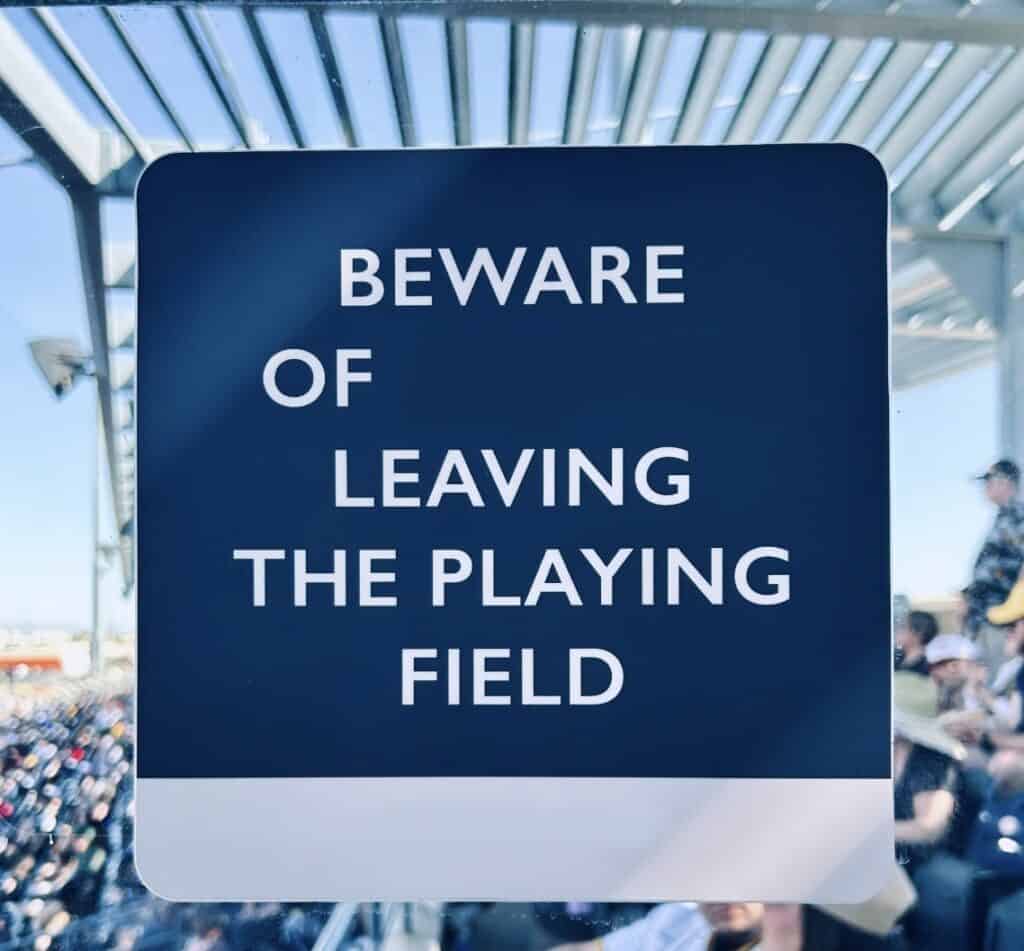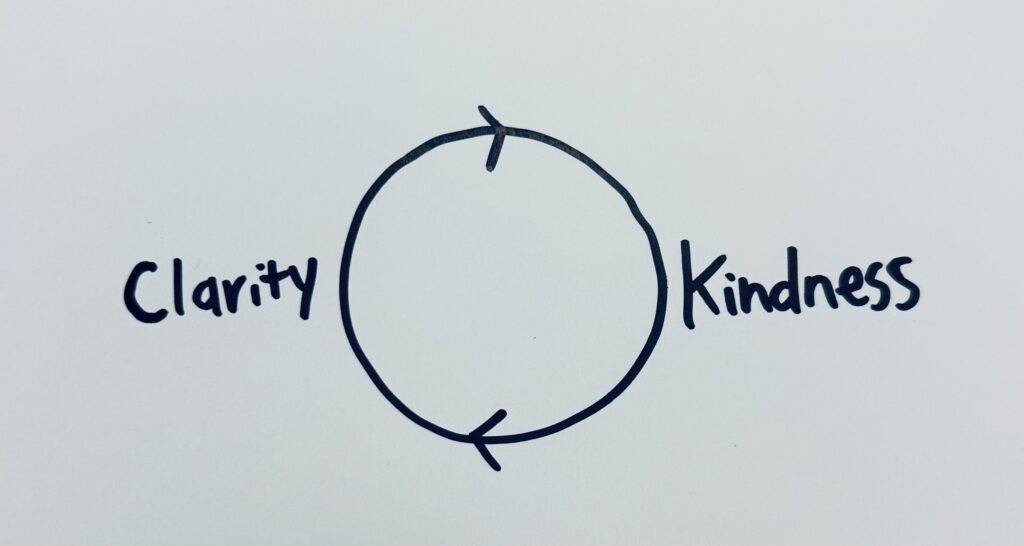Do the work, and let destiny take care of the rest

“There are a million different versions, this is mine.”
For the first few years of his career, White Lotus star Walton Goggins would walk into auditions asking himself, What do these people want from me? “And I can tell you it brought me a lot of pain. A lot of pain,” he says.
But everything changed when he flipped the question. Instead of trying to deliver what he thought they wanted, he started asking himself what he thought the role needed. He thought, “You know what? I’m just gonna come from my heart, and this is my version of it. There are a million different versions of it. And if this is not the version they’re buying, at least I can live with myself at the end of the day. And I can walk away without expecting this job, you know? And that’s really where I found my salvation.”
It’s one of the hardest things to do: to pour your heart into something without thinking about the outcome.
But it’s how the best work gets made.
One of the most brilliant physicists to ever live had his biggest breakthrough when he realized the same thing:
“I have no responsibility to be like they expect me to be.”
After four intense years working on the atomic bomb in Los Alamos, Richard Feynman accepted a teaching position at Cornell. Top universities were competing for him, offering higher salaries and prestige. Albert Einstein himself wrote, inviting Feynman to join the Institute for Advanced Study at Princeton.
But despite the remarkable offers, he couldn’t accept. The years at Los Alamos had drained him. He was exhausted, uninterested in research, and couldn’t write more than two sentences on a scientific problem without losing focus. “They expect me to accomplish something, and I can’t accomplish anything! I have no ideas…”
Then he had a thought. The expectations attached to these offers were absurd—impossible to live up to. And because they were impossible, he realized, he had no responsibility to live up to them!
“It was a brilliant idea: You have no responsibility to live up to what other people think you ought to accomplish. I have no responsibility to be like they expect me to be.”
At Cornell, he decided to return to what had always drawn him to physics in the first place: fun. From now on, he would only work on problems that entertained him. “Now that I am burned out and I’ll never accomplish anything . . . I’m going to play with physics, whenever I want to, without worrying about any importance whatsoever.”
Within a week, he was working on a “fun” project, one a colleague questioned for its lack of importance. “‘Hah!’ I say. ‘There’s no importance whatsoever. I’m just doing it for the fun of it.’ His reaction didn’t discourage me; I had made up my mind that I was going to enjoy physics and do whatever I liked.”
This project of “no importance” led him to win the Nobel Prize.
Literally, who cares?
Before she became a household name, Elizabeth Gilbert had no connections in the publishing world. She knew full well that her writing might never make money. “It might never work,” she remembers thinking. “It didn’t matter. No way was I going to give up on my work simply because it wasn’t ‘working.’ That wasn’t the point of it.”
She understood that the reward couldn’t be external—it had to come “from the private awareness I held that I had chosen a devotional path and I was being true to it.” It had to come from the heart. It had to be fun.
“You might spend your whole life following your curiosity and have absolutely nothing to show for it at the end—except one thing. You will have the satisfaction of knowing that you passed your entire existence in devotion to the noble human virtue of inquisitiveness. And that should be more than enough for anyone to say that they lived a rich and splendid life.”
That kind of devotion changes everything. Work of any kind can be discouraging when we’re thinking about the results. With creative work, the doubt can grow louder—the fear that we have nothing new to say, that everything’s been done before.
But as Elizabeth Gilbert says, who cares? Literally, who cares? There’s nothing new. What is new is yourperspective and passion and the stories you tell. There are a million different versions; this is yours.
She once said she can’t understand how people can create something beautiful and then hide it for fear of being criticized. “She advises writers to send their work to agents ‘as much as possible,’” Louise DeSalvo writes. “And when the rejection letters come back, to ‘take a deep breath and try again.’”
Because it’s the writer’s job to complete the work; it’s the agent’s and editor’s job to decide whether the work is good enough to be published.
It’s your job to give your version, to have fun, to pursue the thing that lights you up. It’s your job “to write your little heart out,” Gilbert insists, “and let destiny take care of the rest.”




